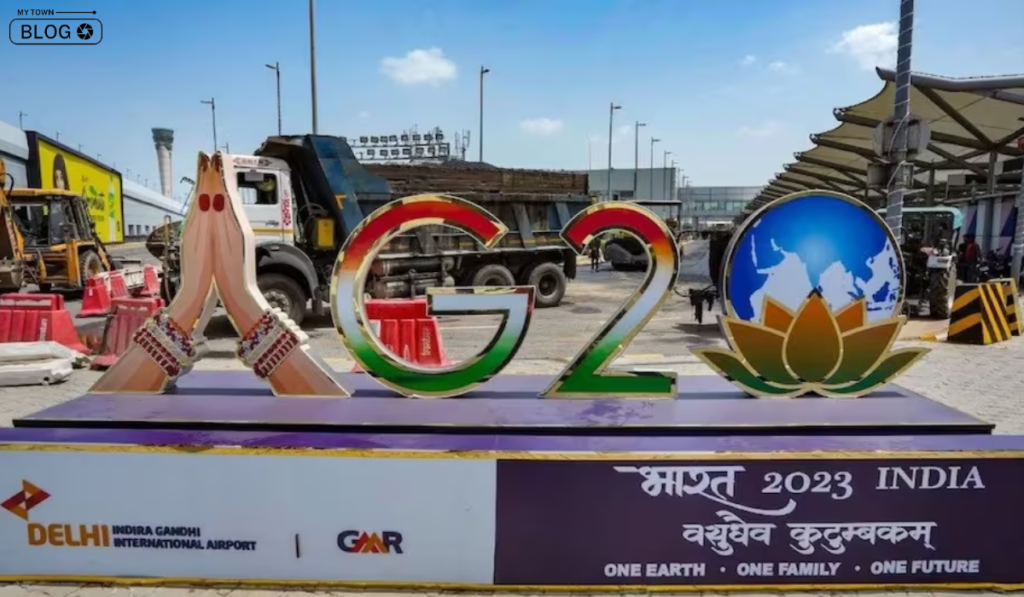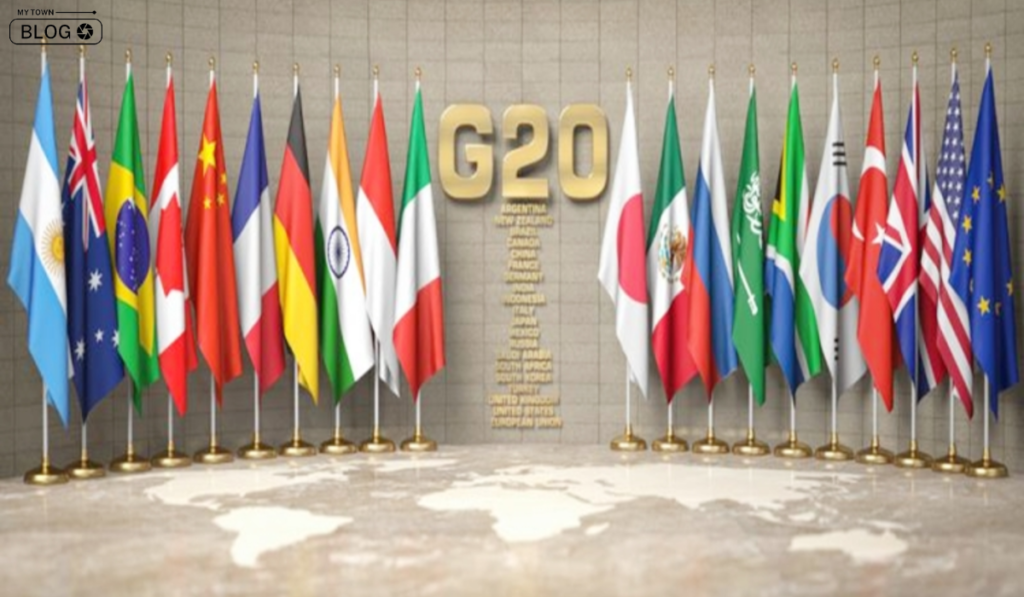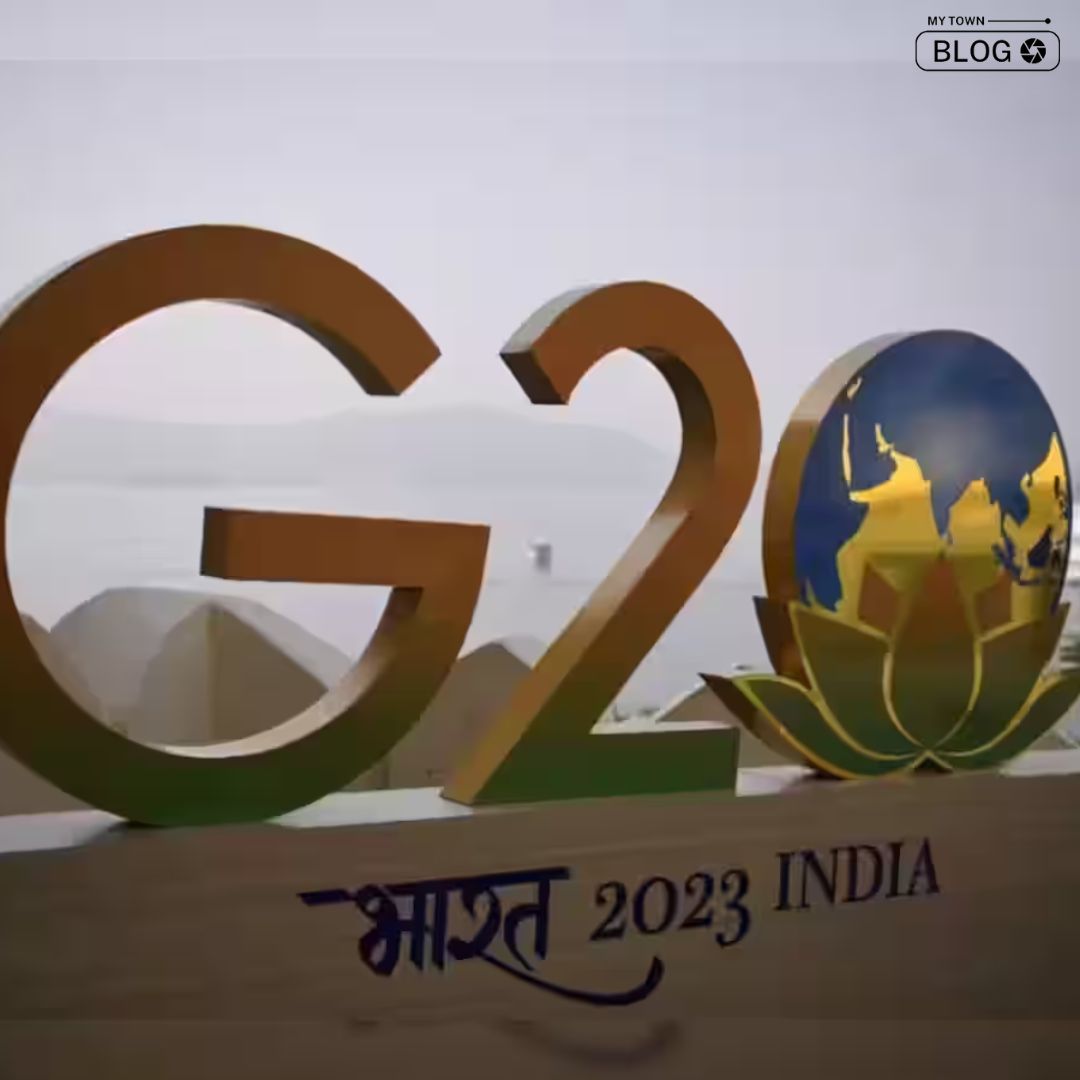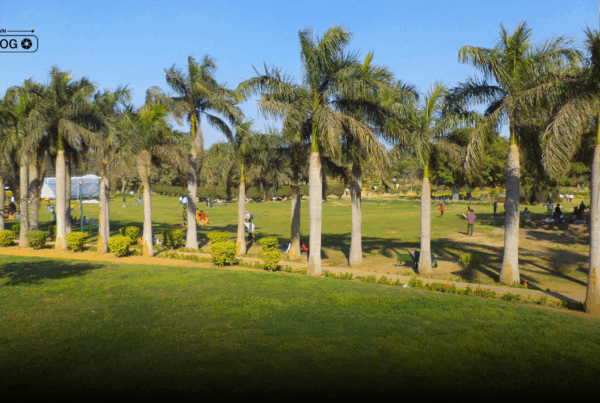India is gearing up to take over the G20 Presidency starting on December 1, 2022, for a year-long term. In anticipation of hosting the G20 Summit 2023 India. Government insiders have disclosed to India Today that India has ambitious plans to arrange over 200 events dispersed across key cities such as Delhi, Chennai, Kolkata, Mumbai, and more as an integral part of this prestigious international gathering.

Origin of the G20
The G20 was established in 1999 following the Asian financial crisis. Primarily serving as a platform for finance ministers and central bank governors to engage in discussions regarding global economic and financial matters.
2023 G20 Summit Date
The upcoming G-20 Summit is set to take place at Bharat Mandapam, located within the prestigious Pragati Maidan complex in New Delhi. The summit is scheduled for September 9th and 10th, 2023. In addition to their active involvement in the summit’s discussions. Distinguished delegates will also have the opportunity to visit significant historical and cultural landmarks. These include the revered Rajghat, the renowned National Gallery of Modern Art (NGMA), and the prestigious Indian Agricultural Research Institute (IARI) in Pusa.
2023 G20 Summit Theme
The G20 Summit 2023, hosted by India, will revolve around the theme of “One Earth, One Family, One Future.” India, as the host nation, will take the lead in shaping the agendas for the G20 Summit meetings. Fostering collaboration among member countries to tackle pressing global economic issues and challenges.
Promotion to the Leader’s Level
In response to the global economic and financial crisis of 2007. The G20 underwent a transformation, elevating its status to include heads of state and government. In 2009, it earned the title of the “premier forum for international economic cooperation. The G20 Summit is now held annually, presided over by a rotating presidency. While its initial focus was primarily on macroeconomic concerns, it has since broadened its agenda to encompass diverse areas. Such as trade, sustainable development, health, agriculture, energy. The environment, climate change, and anti-corruption, reflecting its evolving role in addressing critical global issues.

List of Countries at the G20 Summit 2023
| Country | Head of Countries | Designation |
| Argentina | Alberto Fernández | President |
| Australia | Anthony Albanese | Prime Minister |
| Brazil | Luiz Inácio Lula da Silva | President |
| Canada | Justin Trudeau | Prime Minister |
| China | Xi Jinping | President |
| France | Emmanuel Macron | President |
| Germany | Olaf Scholz | Chancellor |
| India | Narendra Modi | Prime Minister |
| Indonesia | Joko Widodo | President |
| Italy | Giorgia Meloni | Prime Minister |
| Japan | Fumio Kishida | Prime Minister |
| Mexico | Andrés Manuel López Obrador | President |
| South Korea | Yoon Suk-yeol | President |
| Russia | Vladimir Putin | President |
| Saudi Arabia | Salman bin Abdulaziz Al Saud | King |
| South Africa | Cyril Ramaphosa | President |
| Turkey | Subject to the 2023 Turkish presidential election | President |
| United Kingdom | Rishi Sunak | Prime Minister |
| United States | Joe Biden | President |
| European Union | Ursula von der Leyen | President of the European Commission |
| European Union | Charles Michel | President of the European Council |
Countries invited to participate in G20 meetings
| Countries | Head of the Countries | Designation |
| Bangladesh | Sheikh Hasina | Prime Minister |
| Spain | Pedro Sanchez | Prime Minister |
| Egypt | Abdel Fattah el-Sisi | President |
| Mauritius | Pravind Jugnauth | Prime Minister |
| Netherlands | Mark Rutte | Prime Minister |
| Nigeria | Subject to the 2023 Nigerian presidential election | President |
| Oman | Haitham bin Tariq | Sultan |
| Singapore | Lee Hsien Loong | Prime Minister |
| UAE | Sheikh Mohamed bin Zayed Al Nahyan | President |
The functioning of the G20
The G20 operates through a system of rotating presidencies. Each of which guides the G20’s agenda for a one-year term and hosts the annual summit. It comprises two key tracks: the finance track and the sherpa track. The Finance Track is led by Finance Ministers and Central Bank Governors. From member countries and involves thematically focused working groups. Consisting of representatives from relevant ministries, invited or guest countries, and international organizations. These working groups meet regularly throughout the presidency’s term, primarily coordinated by the Ministry of Finance.
On the other hand, the Sherpa Track is overseen by personal emissaries of the leaders known as Sherpas. They coordinate negotiations throughout the year, discussing agenda items for the summit and ensuring the substantive work of the G20 proceeds smoothly. Additionally, there are engagement groups that facilitate the involvement of civil society. Parliamentarians, think tanks, women, youth, labour representatives, businesses, and researchers from G20 countries.
It’s important to note that the G20 does not have a permanent secretariat. Instead, the Presidency receives support from the Troika, which consists of the previous, current, and incoming Presidency countries. For instance, during India’s Presidency, the Troika included Indonesia, India, and Brazil, respectively, providing continuity and guidance in the G20’s activities and priorities.
The G20 Summit held in New Delhi
The 18th G20 Summit scheduled in New Delhi represents the pinnacle of a year-long series of G20 processes and gatherings involving ministers, high-ranking officials, and civil society stakeholders. As the G20 Summit concludes, it will culminate in the adoption of a G20 Leaders’ Declaration. This declaration will encapsulate the commitment of the leaders to the priorities deliberated and agreed upon during various ministerial and working group meetings leading up to the summit.
Key Focus Areas:
- Fostering inclusive, equitable, and sustainable growth
- Promoting LIFE (Lifestyle for the Environment)
- Advancing Women’s Empowerment
- Developing digital public infrastructure and tech-enabled solutions across sectors like healthcare, agriculture, education, and commerce
- Enhancing Skill Mapping, Culture, and Tourism
- Addressing Climate Financing and Building Resilience
- Promoting Circular Economy Practices
- Ensuring global food security
- Strengthening energy security with a focus on green hydrogen
- Mitigating disaster risks and enhancing resilience
- Enhancing developmental cooperation
- Combating economic crime
- Pursuing Multilateral Reforms
Conclusion
The G20 Summit 2023 in India is a significant international event that will bring together leaders from the world’s major economies to address pressing global challenges. With a focus on economic cooperation, sustainable development, and international coordination, the summit aims to foster dialogue and collaboration on a wide range of critical issues. As India takes on the role of host nation, it has an opportunity to influence the agenda and promote solutions to global problems.
FAQs
What is the significance of the G20 Summit?
The G20 Summit is significant because it brings together leaders from major economies to discuss and coordinate on global economic issues, financial stability, and other pressing challenges such as climate change and health crises.
What are the main objectives of the G20 Summit 2023 india?
The main objectives of the G20 Summit 2023 include addressing global economic challenges, promoting sustainable development, enhancing international cooperation, and finding solutions to pressing global issues.
What are the expected outcomes of the G20 Summit in 2023?
The expected outcomes of the G20 Summit 2023 will include joint agreements, policy initiatives, and commitments aimed at addressing economic and global challenges.
How can businesses and organisations participate in the G20 Summit?
Businesses and organisations can participate through engagement with relevant government agencies as well as participation in associated business forums and events.
How can the public stay informed about the developments and outcomes of the G20 Summit in 2023?
The public can stay informed through official government communications, news outlets, official G20 Summit websites, and social media channels.
Are there any opportunities for civil society organisations or individuals to engage with the G20 Summit?
Yes, there are often opportunities for civil society organisations to engage through consultations, forums, and engagement with governments.
What are the challenges and potential obstacles that may arise during the G20 Summit in 2023?
Challenges may include differences in priorities among member countries, logistical complexities, and addressing complex global issues like climate change and economic disparities.








